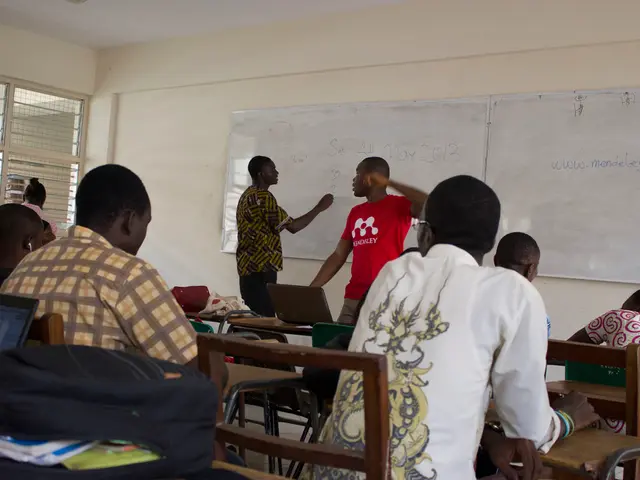Master the Art of Grant Writing for Research Funding with our platform: A Comprehensive Guide
The National Institutes of Health (NIH) Funding Struggles Remain for Researchers
A recent report from the National Institutes of Health (NIH) revealed that only 20% of new research project grant applications were funded in 2022, a challenging statistic for researchers worldwide. As a researcher, perfecting the grant writing process is crucial for a successful career and can make all the difference in securing NIH funding.
To understand what makes grant applications elusive and how to approach them, it's essential to acknowledge what reviewers seek when evaluating research funding applications. According to NIH grant reviewers, proposals frequently fall short in failing to sufficiently support hypotheses and discuss contingency plans. Reviewers predominantly assess the scientific merit of the application when making funding decisions.
Essential Factors to Consider
The NIH mainly evaluates applications based on:
- Influence in the field of research: Proposals should demonstrate potential advancements in scientific knowledge and the capacity to drive the field forward if the project's aims are achieved.
- Challenging the status quo: Proposed research should seek to challenge commonly accepted concepts and approaches.
- Well-reasoned approach: Projects should be founded on strategies that ensure an unbiased inquiry, with a sound comprehension of potential challenges, alternatives, and benchmarks/milestones of the project.
A solid example of a well-rounded grant application is the publicly available proposal by Dr. David Wagner, a renowned voice in autoimmune research. Reviewers praised Wagner's application for its sound scientific basis, rigorous experimental approach, and promising preliminary results.
Tips for Writing Competitive Grant Applications
- Align with the grant requirements: Thoroughly review the grant organization's submission criteria and driving principles, and emphasize how your proposal aligns with them in your application.
- Address the 'So What' of your proposal: Clearly articulate the relevance of your research and the significance of achieving the project's aims in a broader context.
- Obtain critique: Get feedback from colleagues, professional grant reviewers, or editing services. A critique can help you refine your proposal and view it from various perspectives.
Boost Your Grant Writing with our Platform
Navigating the grant writing process can be overwhelming for researchers, burdened with other tasks such as addressing manuscript peer reviews or dealing with administrative duties. Our platform serves as an academic writing guide, allowing you to present a compelling argument for your research grant.
Benefits of using our platform include:
- Answer specific research enquiries: Gain insights from over 250 million research publications to back up your hypothesis with relevant findings.
- Cite references: Use cited references to deliver a well-thought-out grant application.
Embark on your writing journey with our platform, turning the process from long and disconnected into seamless. Sign up for free today, and join other researchers in achieving academic success.
Our platform streamlines the research process by providing accurate academic translations, editing, grammar checks, vocabulary suggestions, and AI assistance. Get started today, or upgrade to our platform Prime for advanced features and support to elevate your research game.
- To enhance the grant writing process and boost academic productivity, consider utilizing our platform as a writing support, which offers academic translation, language editing, and AI assistance.
- In addition to elevating your research game, our platform encourages personal growth and learning by providing access to over 250 million research publications for specific enquiries and reference citation.
- To secure funding from the NIH, it's essential to ensure your research proposal is submission ready, addressing factors such as scientific merit, addressing the 'So What' of your proposal, and alignment with grant requirements.
- Academic translation services can aid in developing a well-reasoned approach and addressing the concerns of academic reviewers, ultimately increasing the chances of a successful grant application.
- To drive the field forward in science, research proposals should outline ways to challenge the status quo while demonstrating influence in the chosen field, ensuring the potential for significant advancements in scientific knowledge.
- As part of a comprehensive approach to academic success, workplace-wellness, health-and-wellness, fitness-and-exercise, and education-and-self-development are crucial for maintaining personal growth and professional productivity.
- By following these tips, such as aligning with the grant requirements, obtaining critique, and providing a sound scientific basis, researchers can increase their likelihood of a successful grant application and contribute to their chosen field, ultimately shaping the scientific landscape.








